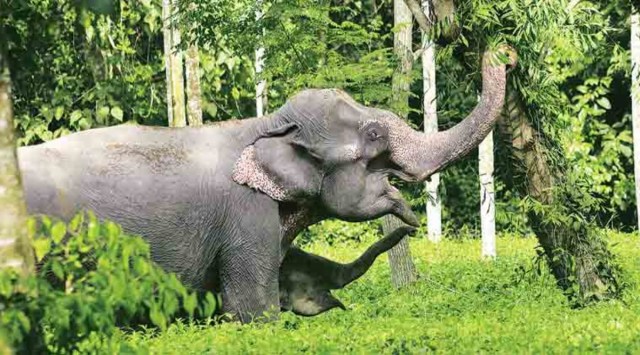DNA profiling of 270 captive elephants completed: Govt
Unlike Project Tiger, the Project Elephant looks at the welfare and health of captive elephants as well, he said.
 To commemorate the successful completion of 30 years of Project Elephant in 2022, the ministry has decided to organise Gaj Utsav 2023 at Kaziranga National Park on April 7-8, which will be inaugurated by President Draupadi Murmu. Assam has the second largest wild elephant population in India. It also has a large number of captive elephants.
To commemorate the successful completion of 30 years of Project Elephant in 2022, the ministry has decided to organise Gaj Utsav 2023 at Kaziranga National Park on April 7-8, which will be inaugurated by President Draupadi Murmu. Assam has the second largest wild elephant population in India. It also has a large number of captive elephants.The DNA profiling of 270 of the 2,675 captive elephants in the country has been completed, officials in the Environment Ministry said Friday.
Announcing the 30-year celebration of ‘Project Elephant’, officials said the DNA profiling of elephants, which will act as the ‘Adhaar card of captive elephants’, was started in August last year for ‘Gaj Soochna’ mobile application for forest officials.
The process is being carried out in collaboration with the Wildlife Institute of India.
The captive elephants had earlier been chipped electronically, but the method was not a success. “With the app, forest officers can identify each elephant and track it and therefore its transfer – which often happens in the case of captive elephants – can be recorded. After the elephant profiling, we will focus on elephant care – with unique information about elephants, we can provide better medicalcare for them,’’said Ramesh Pandey, IG Forest, in-charge of Project Elephant.
Unlike Project Tiger, the Project Elephant looks at the welfare and health of captive elephants as well, he said.
India is home to 20% of the global captive Asian elephant population, but a census of captive elephants is not done regularly. Last census was done in 2018. Project Elephant was launched in 1992 as a Centrally-sponsored scheme with an aim to protect elephants and improve its habitat and corridors, reduce human-elephant conflict and ensure their welfare. As many as 33 elephant reserves, spanning 80,777 sq km, have been notified.
To commemorate the successful completion of 30 years of Project Elephant in 2022, the ministry has decided to organise Gaj Utsav 2023 at Kaziranga National Park on April 7-8, which will be inaugurated by President Draupadi Murmu. Assam has the second largest wild elephant population in India. It also has a large number of captive elephants.







